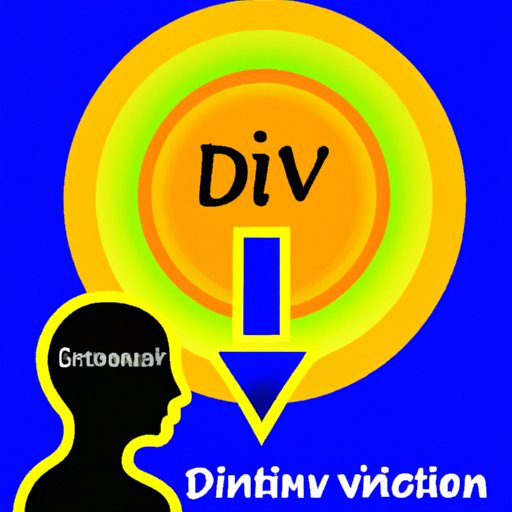
I. Introduction
When it comes to our health, it’s important to ensure that we’re getting all the necessary nutrients our bodies need. One such nutrient that often goes overlooked is Vitamin D. This key nutrient plays a vital role in our health, from supporting bone growth to helping boost our immune system. In this article, we’ll explore what happens if your Vitamin D levels are low, as well as the many benefits of maintaining healthy levels.
II. The Importance of Vitamin D for Our Health: An Overview of Its Benefits
Vitamin D is essential for a wide range of health benefits, including promoting bone growth, regulating calcium and phosphorus levels, and supporting immune function. According to the National Institutes of Health, Vitamin D helps the body absorb calcium, which is needed for strong bones. Additionally, it plays a role in muscle and nerve function, and can even help reduce inflammation. Studies have also shown that Vitamin D may help prevent certain cancers, such as colon, prostate, and breast cancer.
III. Understanding the Symptoms of Vitamin D Deficiency and How to Diagnose It
Symptoms of Vitamin D deficiency can include fatigue, muscle weakness, and bone pain. A blood test can be used to diagnose Vitamin D deficiency, with levels below 20 nanograms per milliliter considered deficient. Vitamin D insufficiency, while not as severe as deficiency, can still have negative health effects, so it’s important to monitor your levels.

IV. How Low Levels of Vitamin D Can Affect Your Mood and Mental Health
Low levels of Vitamin D have been linked to depression and seasonal affective disorder (SAD). Studies have shown that individuals with depression often have lower levels of Vitamin D in their blood. While the exact connection between Vitamin D and mood disorders is not yet fully understood, it’s clear that maintaining healthy levels of Vitamin D is important for both physical and mental health.
V. Exploring the Link Between Vitamin D Deficiency and Bone Health
As previously mentioned, Vitamin D plays a crucial role in bone health. In fact, low levels of Vitamin D can lead to conditions such as osteoporosis, a disease that causes weak and brittle bones. According to the National Osteoporosis Foundation, over 54 million Americans have osteoporosis or low bone density. Getting enough Vitamin D, whether through diet or supplements, is crucial for maintaining strong bones.
VI. Vitamin D and Its Role in Boosting the Immune System
Vitamin D also helps support a healthy immune system, making it a key nutrient for fighting off infections. Studies have shown that Vitamin D can help reduce the risk of respiratory infections, including the flu and pneumonia. Additionally, Vitamin D has been linked to a reduced risk of autoimmune diseases, such as multiple sclerosis and rheumatoid arthritis.
VII. The Best Dietary Sources of Vitamin D and How to Incorporate Them into Your Diet
While our bodies can make Vitamin D when exposed to sunlight, it can also be obtained through certain foods. Fatty fish, such as salmon and tuna, as well as fortified foods like milk and orange juice are all good sources of Vitamin D. Additionally, Vitamin D supplements can be helpful for individuals who may not be getting enough through their diet alone. When taking supplements, it’s important not to exceed the recommended daily dose.
VIII. Conclusion
Vitamin D is an important nutrient that plays a vital role in our overall health. From supporting bone growth to boosting the immune system, the benefits of maintaining healthy levels of Vitamin D cannot be overstated. By monitoring our Vitamin D levels through blood tests, incorporating Vitamin D-rich foods into our diet, and taking supplements when necessary, we can ensure that we’re giving our bodies the nutrients they need to thrive.




